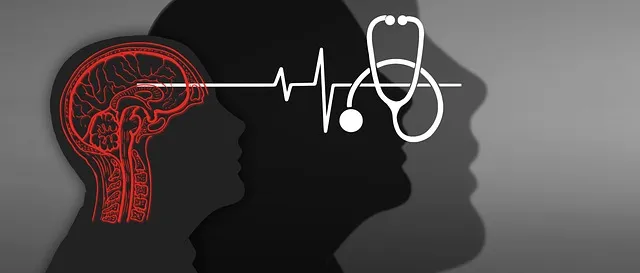Louisville Kaiser Permanente's mental health professionals face unique challenges that require a robust risk management strategy. By identifying and mitigating risks like patient self-harm, adverse drug reactions, and burnout, they create a supportive environment for both patients and practitioners. This involves comprehensive risk assessments, targeted education programs, and tailored mitigation strategies based on patient demographics, clinical presentations, and environmental factors. Crisis intervention guidance, emotional intelligence training, and well-designed mental health education programs empower clinicians to handle diverse cases effectively. Continuous monitoring and improvement ensure the practice remains a leader in compassionate, evidence-based mental health care for Louisville residents.
In the high-pressure environment of Louisville Kaiser Permanente, effective risk management planning is paramount for mental health professionals. This article delves into the critical components of risk management, providing a comprehensive guide tailored to Louisville’s unique context. From understanding foundational concepts to identifying patient and community factors, we explore creating robust assessment frameworks and implementing practical strategies. Continuous monitoring ensures adaptability, enhancing care delivery for every patient, making it a valuable resource for all Kaiser Permanente mental health professionals.
- Understanding Mental Health Risk Management: A Foundation for Louisville Kaiser Permanente Professionals
- Identifying Potential Risks: From Patient History to Community Factors in Louisville
- Creating a Comprehensive Risk Assessment Framework for Effective Planning
- Implementing Strategies: Practical Tools and Techniques for Louisville Kaiser Permanente Clinicians
- Continuous Monitoring and Improvement: Ensuring Adaptability in Mental Health Care
Understanding Mental Health Risk Management: A Foundation for Louisville Kaiser Permanente Professionals

Mental health professionals at Louisville Kaiser Permanente face unique challenges that require a robust risk management strategy. Understanding mental health risk management is essential to fostering a safe and supportive environment for both patients and practitioners. This foundation involves recognizing potential hazards, such as patient self-harm, adverse drug reactions, or professional burnout, and implementing proactive measures to mitigate these risks. By integrating effective conflict resolution techniques and stress management strategies, Louisville Kaiser Permanente can enhance the overall well-being of its mental health professionals and improve patient outcomes.
A key component of this approach is equipping staff with tools for managing anxiety relief during intense situations. Through regular training and education, professionals can learn to navigate challenging appointments with calmness and clarity, ensuring a more positive experience for both parties. By addressing these risks head-on, Louisville Kaiser Permanente promotes a culture where mental health care providers feel supported, empowering them to deliver exceptional care in every interaction, whether it’s handling complex cases or simply managing heightened stress during appointments.
Identifying Potential Risks: From Patient History to Community Factors in Louisville

In Louisville, mental health professionals at Kaiser Permanente face a unique set of challenges when it comes to risk management planning. Identifying potential risks begins with a thorough review of patient history, encompassing past trauma, psychiatric disorders, and substance abuse issues. These historical factors are crucial indicators of present-day vulnerabilities and can significantly impact a patient’s emotional well-being promotion techniques during mental health appointments.
Community factors also play a significant role in risk assessment. Louisville’s diverse demographics and socio-economic conditions may contribute to specific mental health concerns among different populations. Professionals must be vigilant about community-based stressors, such as unemployment rates, access to healthcare, and local support systems, which can influence patients’ mental wellness. By considering these multifaceted elements, Kaiser Permanente ensures a comprehensive approach to risk management, fostering safer and more effective mental health care for Louisville residents.
Creating a Comprehensive Risk Assessment Framework for Effective Planning

A comprehensive risk management plan for Louisville Kaiser Permanente mental health professionals begins with a robust Risk Assessment Framework. This framework should meticulously evaluate various aspects of practice, including patient demographics, clinical presentations, and environmental factors. By integrating data from past incidents, known risks associated with specific diagnoses, and feedback from experienced colleagues, professionals can create a detailed picture of potential hazards.
This assessment allows for the strategic design of mental health education programs that enhance practitioners’ confidence in managing diverse cases. It ensures that risk mitigation strategies are tailored to address specific challenges, promoting optimal patient outcomes. A well-structured framework further enables proactive planning, where resources and protocols can be allocated efficiently to navigate potential risks, ultimately fostering a supportive environment for both patients and professionals, enhancing mental wellness within the practice setting.
Implementing Strategies: Practical Tools and Techniques for Louisville Kaiser Permanente Clinicians

Implementing effective risk management strategies is essential for Louisville Kaiser Permanente clinicians to ensure safe and supportive mental health appointments. Practical tools such as Crisis Intervention Guidance (CIG) empower professionals to handle potential emotional crises during sessions. By integrating CIG into their practice, clinicians can recognize early warning signs of distress in patients and provide timely interventions.
Additionally, fostering Emotional Intelligence (EI) is a powerful technique for managing risks. Clinicians with strong EI skills can better understand and respond to the nuanced emotions expressed by their patients. Louisville Kaiser Permanente mental health professionals can benefit from ongoing training in EI development, enhancing their ability to create a safe and nurturing environment during appointments. These strategies, combined with well-designed Mental Health Education Programs, enable clinicians to navigate complex emotional landscapes effectively while prioritizing patient safety.
Continuous Monitoring and Improvement: Ensuring Adaptability in Mental Health Care

In the dynamic field of mental health care, continuous monitoring and improvement are paramount to staying ahead of evolving patient needs. Louisville Kaiser Permanente mental health professionals recognize that adaptability is key in ensuring effective treatment and support. Regularly reviewing and updating risk management plans allows for the integration of new research, therapeutic techniques, and public awareness campaigns development, such as those focused on Stress Reduction Methods. This proactive approach not only enhances service quality but also fosters a culture of Self-Care Routine Development for Better Mental Health among both practitioners and clients.
Through ongoing assessment, mental health teams can identify trends, pinpoint areas for improvement, and promptly implement changes. For instance, tracking patient outcomes and satisfaction rates may reveal the need to expand access to certain therapies or adjust appointment scheduling systems. By embracing this continuous cycle of monitoring and enhancement, Louisville Kaiser Permanente maintains its position as a leader in providing compassionate, evidence-based mental health services, catering to the diverse needs of its community.
Risk management planning is an indispensable tool for Louisville Kaiser Permanente mental health professionals, enabling them to provide safe, effective, and adaptive care. By understanding foundational concepts, identifying diverse risks, and implementing practical strategies, clinicians can enhance patient outcomes and navigate the complexities of modern mental healthcare. Continuous monitoring and improvement are key to staying responsive to changing landscapes and ensuring a robust framework that supports both patients and practitioners. This comprehensive approach not only strengthens risk management within Louisville Kaiser Permanente but also serves as a model for optimal mental health care across the region.






